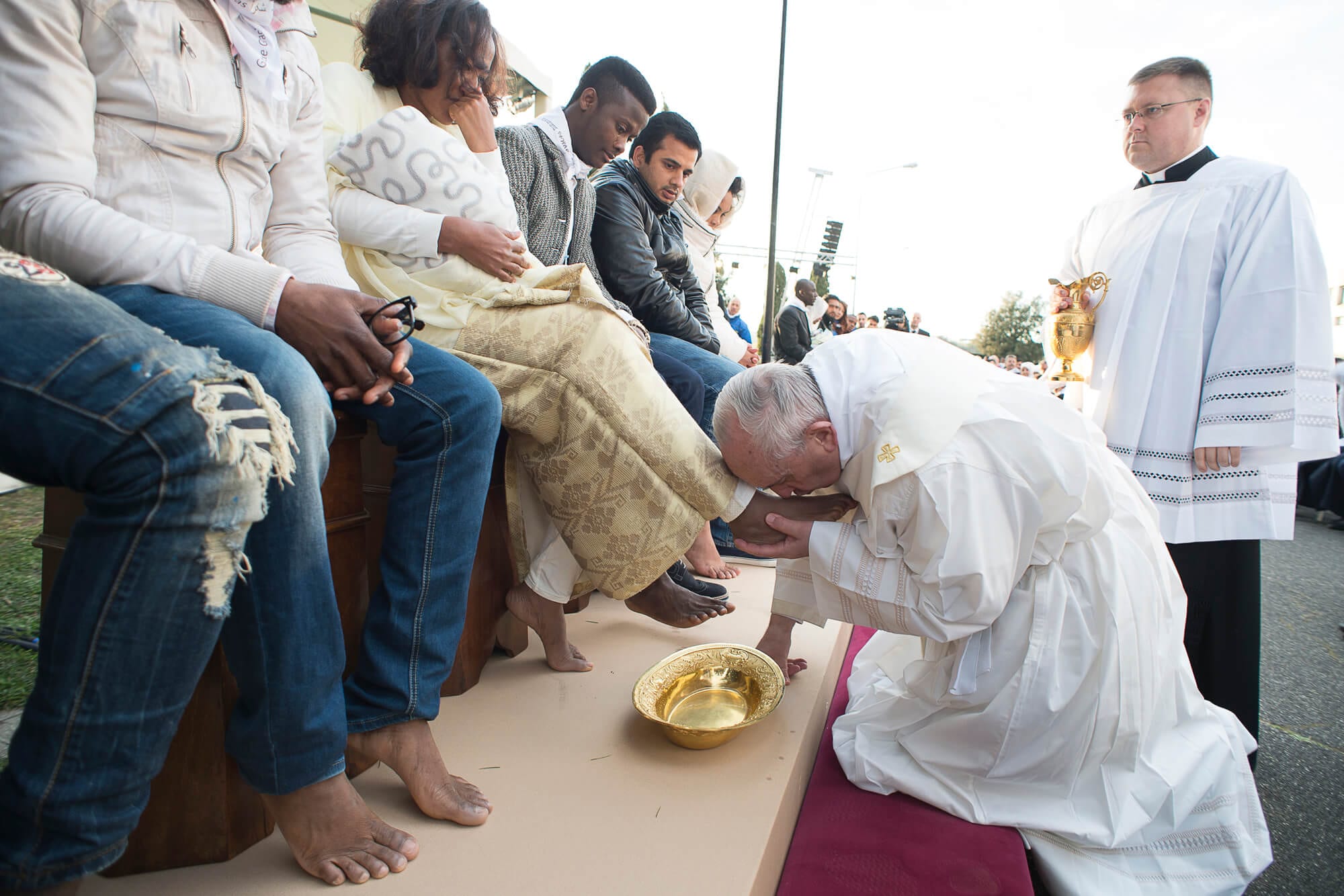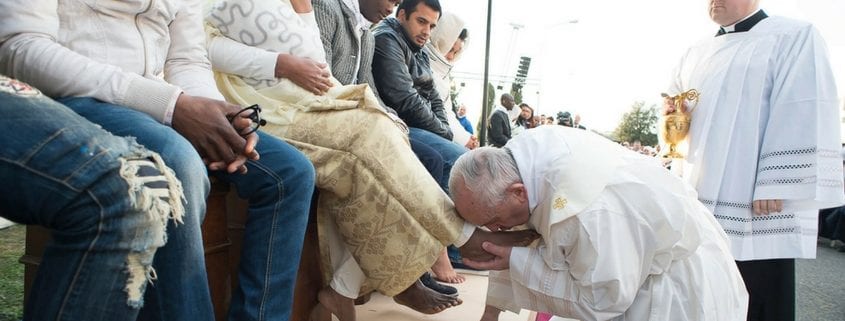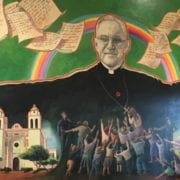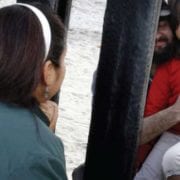Holy Thursday: Radical Reversals
BY MICHAEL IAFRATE | March 29, 2018
Holy Thursday
Today’s Readings

Among the many reasons Holy Thursday haunts me is the question it raises: Where does the Eucharist place you? Robert Karris reminds us that “Jesus was crucified because of how he ate.” Today’s Gospel from John shows us “how” Jesus ate by focusing not on the meal, but on his washing the disciples’ feet.
Jesus’ act is usually understood as a call to service, but Peter’s offended reaction suggests that more is going on here. Foot washing was a task performed by slaves and by women for people—usually men—of higher status. Jesus was not simply demonstrating “service,” which can become ritualized, paternalistic, and even gendered. Rather, he was taking his place among the dominated, radically upending customs based on honor and unequal status. Peter was troubled by where Jesus was placing himself.
In “how he ate,” Jesus linked worship and justice and, like the prophets, denounced the false worship that hides oppression (Amos 5: 21-24). But despite Jesus’ invitation to “do likewise,” our liturgies often reinforce inequality. I recently attended a cathedral liturgy honoring people of an elite profession. The elaborate Mass included two bishops, multiple concelebrants, a guest homilist, and a full choir. Several “esteemed guests” were singled out, and an elaborate reception followed with a security guard at the door.
What would the church look like if we took Jesus’ Holy Thursday example seriously? Pope Francis gives us a hint. Each Holy Week, Francis bypasses traditional Vatican locales and celebrates Holy Thursday at prisons and refugee centers. Francis breaks liturgical and social boundaries by washing the feet of diverse people, including Muslim women, embodying Jesus’ invitation to “do the same.”

That “offensive” Thursday meal “broke forth” into the world as Jesus took his place with the condemned in his execution. What acts might “break forth” from our own breaking of the bread? Perhaps we are called to subvert paternalistic service by placing the poor at the center, remembering, as Jon Sobrino says, that justice is “not just a matter of giving to them, but of receiving from them.” Decades ago, the Appalachian Catholic bishops and activists insisted that “the people themselves must shape their own destiny.” Today, people of faith are putting this belief into practice by continuing Martin Luther King’s Poor People’s Campaign.
Jesus knew God had “put everything into his power” to enact a Kingdom of radical reversals. Elsewhere in John’s Gospel, Jesus tells us that this power belongs to us as well (14:12). May each Eucharist redraw the maps by which we “place” ourselves, and help us to offer each place where we find ourselves a taste of the life of the world to come.
Michael Iafrate is Co-Coordinator of the Catholic Committee of Appalachia (CCA) and served as the lead author of CCA’s “People’s Pastoral,” The Telling Takes Us Home: Taking Our Place in the Stories that Shape Us. He is a West Virginia native, a graduate of Wheeling Jesuit University (’99 and ’03), and is completing a dissertation in theology for the University of St. Michael’s College at the University of Toronto. His writing has appeared in National Catholic Reporter and Religion Dispatches and in the collections Secular Music and Sacred Theology, edited by Tom Beaudoin (Liturgical Press, 2013) and the forthcoming Music, Theology, and Justice, edited by Michael O’Connor, Christina Labriola, and Hyun-Ah Kim (Lexington Books, 2017). He is also a singer-songwriter and old time musician.









The first thing I noticed before reading this reflection were the gold receptacles being used by the clergy in the accompanying photograph. A picture is worth a thousand words…….
Yes the Pope is treating these people like royalty, a place which they probably don’t fit into in our society.
…it is supposed to be a special symbol of an “important person” bowing down to do the work of a servant. That’s what Jesus did
Indeed, service and giving can be paternalistic. I have, I am, I can, therefore I can give you who don’t have, are nobody, and can’t, depending on the situation. This puts me in a superior position that in a way humiliates you, especially with certain attitudes. I should be sharing, sharing your reality, sharing who I am and what I have. And of course, we end up receiving more than we give. It is complicated to explain but that’s how I feel. Excellent reflexion, thank you.
The Lord heals us and makes us free to walk into freedom.